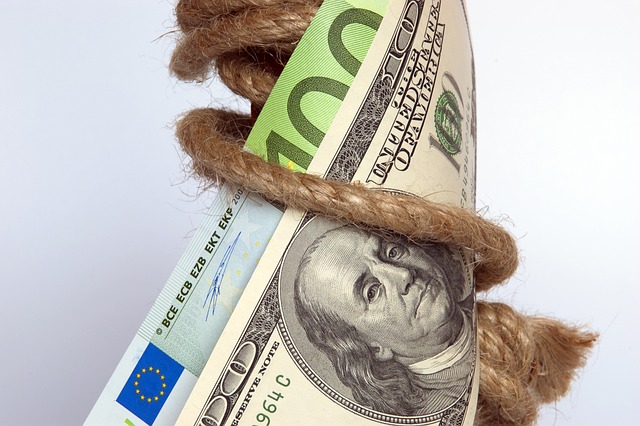In the world of casino gambling, the way you move money into and out of your account can be as crucial as your strategy at the table. A safe payment system protects you from fraud, ensures timely deposits and withdrawals, and keeps your bankroll in good shape. This article explores the essential practices that help players maintain financial security while enjoying the excitement of betting.
Understanding the Risks of Insecure Payments
When you choose a payment method that lacks proper encryption or falls short of industry standards, you expose yourself to a range of risks. Cybercriminals can intercept transaction data, clone cards, or trick you into giving away personal information. Even if a casino claims to be trustworthy, weak security protocols can lead to account takeover, unauthorized bets, or delayed payouts.
A safe payment is not just a feature of the casino; it’s a shared responsibility between the player, the financial institution, and the betting platform. Knowing how each party safeguards transactions helps you pick the most reliable options.
Choosing the Right Payment Method
Not all payment methods are created equal. Some offer strong authentication, while others may leave you vulnerable. Below are the most common methods, ranked by their typical safety features:
- Credit and Debit Cards – Offer widespread acceptance and fraud‑monitoring tools. Look for cards that support chip and PIN or contactless verification.
- Bank Transfers – Provide high security through direct banking channels but may take longer to process.
- Digital Wallets (PayPal, Skrill, Neteller) – Combine convenience with secure tokenization, but always use a dedicated account for gambling.
- Prepaid Cards – Limit exposure to your main accounts, yet the anonymity can be a double‑edged sword for casinos to detect suspicious activity.
- Cryptocurrency – Offers privacy and fast settlement, but the lack of consumer protection and regulatory oversight can be risky.
When selecting a method, prioritize those that support two‑factor authentication and have a clear, reputable history of handling large financial flows.
Authentication Enhancements
Secure payment isn’t only about encryption; it’s also about verifying who is making the transaction. The following authentication practices are considered best in class:
- Two‑factor authentication (2FA) via authenticator apps or SMS.
- Biometric login options, such as fingerprint or facial recognition.
- One‑time passwords (OTP) that expire within minutes.
- Device fingerprinting, ensuring the transaction originates from a recognized device.
These layers create a robust safety net, significantly reducing the likelihood of unauthorized transfers.
Banking on the Casino’s Side: Security Protocols
Even the safest payment method can be compromised if the casino itself falls short of security best practices. Players should verify that the casino uses:
- SSL/TLS encryption for all web traffic.
- Regular security audits and third‑party penetration testing.
- Secure data storage practices that separate financial data from personal data.
- Transparent privacy policies outlining how sensitive information is protected.
“A secure casino is like a well‑guarded vault—every entry point is fortified, and each transaction is logged for auditability.”
By choosing a casino that adheres to industry standards, you help guarantee that your safe payment process remains intact from both ends.
Budgeting and Safe Payment Practices
Effective bankroll management starts with a clear budget. Setting a maximum deposit limit and using payment methods that cap your spending can prevent impulsive bets that exceed your intended budget.
Some payment providers offer built‑in limits or alerts when you approach a preset threshold. Utilizing these features ensures that you stay within your financial boundaries.
Tracking Your Transactions
Maintain a dedicated ledger—digital or physical—where you log every deposit and withdrawal. Include the following details:
- Date and time of the transaction.
- Payment method used.
- Transaction amount.
- Confirmation number or reference code.
- Any relevant notes (e.g., “Pending due to KYC verification”).
This habit not only keeps your finances organized but also helps you spot irregularities early, such as duplicated charges or missing deposits.
Digital Wallets: The Convenient Yet Safe Option
Digital wallets have gained popularity because they combine speed with security. These platforms typically:
- Use tokenization to replace sensitive card data with a random identifier.
- Offer instant transaction settlement for both deposits and withdrawals.
- Provide dispute resolution tools if a transaction turns out to be fraudulent.
When using a wallet, always enable all available security features—especially two‑factor authentication—and keep your app updated to the latest version.
Protecting Your Wallet Account
Apply the same precautions you would to any online account:
- Use a strong, unique password that includes a mix of letters, numbers, and symbols.
- Set up a recovery phrase or security questions.
- Regularly review account activity for unfamiliar transactions.
- Log out after each session, particularly on shared devices.
By treating your digital wallet with the same diligence you would a bank account, you reinforce the safe payment chain.
Handling Payment Disputes and Refunds
Even the safest payment environment can experience hiccups. Knowing how to resolve disputes quickly is essential to protect your bankroll. Typical steps include:
- Contact the payment provider’s support team within 24 hours of noticing a problem.
- Provide all evidence—screenshots, transaction IDs, and communication logs.
- File a formal dispute or chargeback through the provider’s portal.
- Keep a record of all correspondence until the issue is resolved.
Most reputable casinos cooperate fully with payment providers during dispute resolution, often expediting refunds once the issue is verified.
Prevention is Better Than Cure
To avoid disputes altogether, maintain consistent communication with your chosen casino’s support team. Confirm that your account is verified, understand the withdrawal limits, and stay aware of any scheduled maintenance that might affect transactions.
Emerging Trends in Safe Payment Technology
The gambling industry is continuously evolving to address new security threats. Several innovations are already making their way into mainstream casino platforms:
- Biometric Verification – Facial recognition or fingerprint scans as a final authentication step.
- Blockchain Ledger Verification – Transparent record‑keeping for every transaction that’s hard to alter.
- AI‑Driven Fraud Detection – Algorithms that flag unusual betting patterns or rapid withdrawal requests.
- Real‑Time KYC Validation – Immediate verification of identity documents to prevent money‑laundering risks.
Players who stay informed about these developments can better choose casinos that align with modern safety standards.
Final Thoughts on Maintaining Safe Payment Practices
Safe payment is the bedrock of a responsible gambling experience. By selecting reliable payment methods, enforcing multi‑layer authentication, keeping a meticulous transaction record, and staying vigilant against emerging threats, players safeguard both their finances and their enjoyment at the casino.
Remember: the excitement of the game should never come at the cost of your financial well‑being. Treat every transaction as a crucial step in a larger strategy—your strategy for responsible, secure, and successful gambling.




